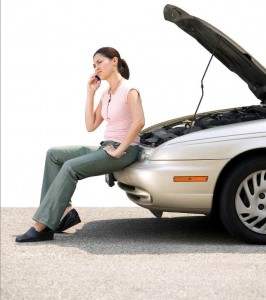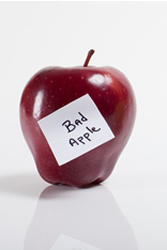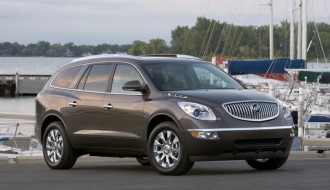Car buying can be a stressful time for anyone and trying to decide whether you should buy from a personal seller or a dealership can increase the frustration.
In hopes of making the whole process a bit easier we have gathered some important facts on both options that we think will prove to be very helpful. Take a look at some important facts about buying a car from a personal seller vs a dealership.
Private Sellers are Usually Cheaper
 Most people do not realize that when a dealership prices a vehicle they are charging a lot more than they actually paid for it. They usually get their vehicles from auctions or at wholesale prices, so they are paying only a fraction of the cost they are charging for it. They also will sometimes charge a bit higher because they go through the trouble of maintaining an inventory and the hassle of accepting new trade-ins.
Most people do not realize that when a dealership prices a vehicle they are charging a lot more than they actually paid for it. They usually get their vehicles from auctions or at wholesale prices, so they are paying only a fraction of the cost they are charging for it. They also will sometimes charge a bit higher because they go through the trouble of maintaining an inventory and the hassle of accepting new trade-ins.
Private sellers are cheaper because they often only charge what the Kelley Blue Book says is the value for a private seller. The price may be reduced even more if the person is trying to get rid of it quickly and just looking to make a little money back rather than a lot. There is usually a bit of room to haggle with an individual person as well, so keep that in mind if you go this route.
Dealerships Cannot Knowingly Sell a Broken Vehicle
The legal protection for buyers when purchasing a car from a dealership is called the warranty merchantability. What this means is that dealerships cannot knowingly sell you a car that does not meet the minimum quality standards. Most states have a law that states that if you purchase a vehicle that has an operating issue at the time you complete the transaction that you are entitled to take legal action. Examples of some potential basic operating problems are broken axles, cracked engine or non-functioning brakes.
Luckily dealerships know that they cannot get away with selling a car with these issues and they would be doing themselves a disservice by trying to sell a lemon. Do keep an eye out for any sales that say that a car will be sold “as is” because when you purchase one under that context there is nothing you can do about any forthcoming issues. Basically you are agreeing to take on any and all problems that may occur once you have the keys. Each state has their own lemon laws and it is a great idea to check them out if you are considering purchasing a car in the near future.
Private Sellers Can Sell You a Broken Car
 When buying a car from a private seller you should always consider the sale to be “as is” unless you have some sort of contract in writing that states otherwise. When purchasing a car from a seller you should always do your homework and be wary of any deals that seem too good to be true because the odds are that if it seems that way it is.
When buying a car from a private seller you should always consider the sale to be “as is” unless you have some sort of contract in writing that states otherwise. When purchasing a car from a seller you should always do your homework and be wary of any deals that seem too good to be true because the odds are that if it seems that way it is.
Private sellers do not have to abide by the same strict laws that dealerships do and they can pretty much say whatever they want to about the vehicle whether it is true or not. There are cautionary tales about buyers finding out that the car they purchased was in an accident, stolen or in the process of repossession by the title holder all the time unfortunately. Don’t let something that like happen to you. Do a vehicle history check before purchasing as well as have it checked out by a mechanic. This is the time to cover yourself first and foremost because once you hand over your money there is no turning back.
Time Spent Researching and Buying a Car
There are two types of car shoppers out there. There are the ones that go to the dealerships or meet up with private sellers, test drive the cars of interest and make a decision. Whether you are buying from dealership or a private seller has little impact on the amount of time being spent making a selection. In all actuality you are going to want to test drive each car you are interested in regardless of where it is coming from, therefore the amount of time spent is pretty much the same.
The other type of car buyer is research and cost oriented, meaning that they tend to do a lot of thinking and planning before even stepping foot on a car lot or meeting with a seller. They will likely research the types of cars, where to buy and have a pretty set price range in mind before sealing the deal. The amount of time spent doing research is again much the same whether you are buying a car from a private seller or a dealership.
There are Good and Bad Apples Among Sellers
 As with anything in life, there are going to be both good private sellers and bad ones. The same can be said for dealerships as well. There will be those private sellers and/or dealerships that have your best interest at hand just as there are those that are looking to make a quick buck at your expense. The only way to avoid being a victim of the bad apples is to educate yourself as much as possible.
As with anything in life, there are going to be both good private sellers and bad ones. The same can be said for dealerships as well. There will be those private sellers and/or dealerships that have your best interest at hand just as there are those that are looking to make a quick buck at your expense. The only way to avoid being a victim of the bad apples is to educate yourself as much as possible.
Buyers that are well versed on vehicle laws, car mechanics, pricing and that are willing to pay a bit extra for vehicle history reports make for much more difficult targets. Try to save yourself a lot of time and money by brushing up on all of these things before making an official purchase whether you are buying from a private seller or a dealership. You have to take the proactive steps to protect yourself because no one else will be able to do that for you.
You are now armed with all the important facts about buying a car from a personal seller vs a dealership. We hope that you are able to find the best deal possible and that you have an easy, successful transaction no matter who the seller is. Good luck!

